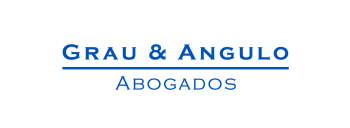On 2 February 2021 the Madrid Court of Appeal nullified a first-instance trial court judgment which had acquitted the defendants of committing a criminal offence. The appeal court found that the trial court had wrongly:
- declared the facts of the case to be a misdemeanour against intellectual property (and not a criminal offence); and
- consequently, determined that the statute of limitations for misdemeanours had lapsed.
The proceedings started with the seizure of garments which illegally reproduced several well-known trademarks from a stall at the Outlet Fair that took place in the Glass Pavilion of the Casa de Campo, Madrid. The defendants were responsible for the stall and one of them was the manager of a company that dealt with the garments' storage, distribution and commercialisation.
Madrid Trial Court 18 decision
Madrid Trial Court 18 declared as proven the fact that the defendants had deliberately commercialised products which infringed the trademark rights of other parties with the intention of seeking profit. However, it declared that such actions constituted a misdemeanour instead of a criminal offence and acquitted the defendants, determining that the statute of limitations for a misdemeanour had lapsed.
Despite having been acquitted, the defendants appealed the sentence based on the alleged violation of their presumption of innocence right (for the facts which the first-instance sentence had declared as proven), alleging that:
- they had not known that the garments were fake; and
- the garments could not be confused with the originals.
The trademarks owners also appealed the sentence, arguing that the court had incorrectly applied the mitigated subtype of criminal offences against intellectual property, making the case a misdemeanour (meaning that it carried lower penalties and shorter statutes of limitation than a criminal offence). The trademarks owners requested the nullity of the sentence so that the first-instance court could issue a new judgment to rectify its previous erroneous legal assessment.
Madrid Court of Appeal decision
Defendants' appeal
To the appeal filed by the defendants, the appeal court responded that to determine that the presumption of innocence right had been violated, there would have to be a lack of evidence for the facts of the case or some essential elements of the crime.
In this respect, the trial court analysed the evidence and found that, at the time, the defendants had not responded to the police request to provide invoices of the illegal products' purchase. When they had finally disclosed such documents in their statement of defence, it had been deduced that the garments purchased were priced suspiciously low. Further, the packaging and labelling were the same for all of the products, regardless of the trademark infringed. Therefore, the products' falseness was clear. The appeal court added that, from the evidence examined, the concurrence of each element, both objective and subjective, of an IP infringement could be inferred.
Regarding the defence's second allegation, the appeal court recalled that for criminal offences against intellectual property, the legally protected value is neither the market nor consumers but rather the owner's exclusive and excluding right to use its registered trademarks. Such protection may indirectly impinge on the consumer's profit and the market itself, considering, for example, business investments made to offer guarantees of quality. However, Article 274 of the Criminal Code directly protects the commercial and economic value that transcends from the distinctive signs and not the consumer.
The appeal court pointed out that what should be assessed is the confusability of the registered trademark with the sign reproduced on the seized product, rather than a possible comparison between the original and infringing products. It is noteworthy that the appeal court considered that the case law is unanimous when interpreting this criminal precept in such terms.
Trademark owners' appeal
Regarding the private prosecutors' allegations, to which the public prosecutor adhered, the appeal court admitted that the question raised in their appeal was a legal question and that it did not intend to modify the proven facts.
The appeal court accepted the prosecutors' argument and found that the trial court had erroneously interpreted Article 274(2) of the Criminal Code, where the aforementioned mitigated subtype is set out.
The appeal court declared that the requirements included in this provision must occur cumulatively for the infringement to be considered a misdemeanour and not an offence. Thus, the following conditions must all be present:
- the profit obtained by the infringer must not exceed €400;
- the case must concern retail distribution; and
- the infringer's characteristics (not specified in the Criminal Code) must be considered.
In this case, the mitigated subtype which is stipulated for other types of infringer and infraction could not be applied to the defendants because:
- they were businesspeople and had established a company;
- the facts of the case related to a corporate purpose;
- the defendants' company had annual statements and an international reach; and
- the garments had been offered in an establishment open to the public (ie, a fair).
Due to these factors, the appeal court nullified the first-instance court's acquittal so that the criminal court could issue a new sentence without modifying the proven facts or having to hold a new trial hearing, but considering the interpretative guidelines on the applicable criminal precept.




